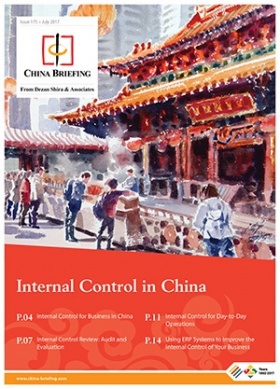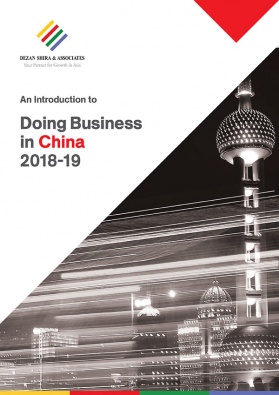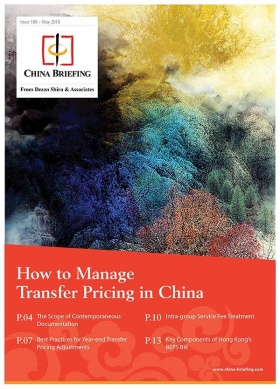Fraud in China: Where is Your Company Losing Money?
Foreign businesses are less likely to disregard fraud in China than in the past. The speed of economic growth in the country detracted attention from cost savings; a more competitive market now means businesses need to build stronger anti-fraud programs to protect margins and improve efficiency.
But preventing and detecting fraud is not getting any easier. The pace of regulatory reform and the grey legal areas these reforms can create make a space where businesses can begin operating halfway between right and wrong.
Overseas stakeholders are already handicapped in this environment due to geographic distance, which limits their visibility on their China operation. But their risks are exacerbated by the increased capability of local enforcement agencies, which have considerable leeway in interpreting new national measures.
Small and medium-sized enterprises (SMEs) are particularly vulnerable. SMEs have fewer resources to invest in strong internal controls.
In their absence, the potential for fraud increases, particularly when high growth expectations do not reflect local market conditions. SMEs cannot afford large fraud losses when they are attempting to expand in a competitive market.
But before foreign investors invest time and funds in anti-fraud programs at their Chinese subsidiary, it is vital to understand the types of fraud that are prevalent.
Financial statement fraud
Income overstatements
Income overstatement is the artificial inflation of a company’s income figures.
Finance managers most commonly achieve this through fictitious revenue recognition, often by exaggerating the sales price or the number of units sold in the financial statements.
The changing economic climate has affected many China-based managers, who may struggle to meet performance targets set by overseas shareholders. This risk increases when performance targets are linked to performance-based remuneration.
The concept of face (“mianzi”), meanwhile, can also incentivize managers in China to portray the business in a kinder light by distorting financial gains.
Income understatements
Income understatement is the artificial deflation of a company’s income figures, most commonly perpetrated by a finance manager understating revenues or overstating expenses.
A common motive for income understatement is corporate tax evasion, which can have dire consequences on the company and its top management even if the stakeholders play not part in sanctioning the scheme.
Indeed, the company’s Legal Representative – often a senior manager at group level – can be held personally responsible for the malfeasance of the company and face prosecution in China.
The on-going crackdown on tax evasion in the country has arguably increased the consequences of this type of fraud.
Corruption
Conflicts of interest
Businesses are exposed to conflicts of interest when their agents or employees take part in related-party sales or purchases – fraudulent purchasing schemes are most common.
This often occurs when a manager purchases products or services from a company owned by a friend, relative, or even another company owned by the perpetrator.
This form of bid rigging is arguably the most common type of fraud that foreign businesses experience in China.
Conducting background checks before hiring executives or selecting any supplier can limit the potential for exposure to this kind of fraud.
Bribery
Gifts, red envelopes (“hongbao”), or dinners are still used by sales teams to facilitate business deals, though examples of malfeasance are less frequent than in the past.
Companies often have different views as to what constitutes bribery, but what is most important is for the anti-bribery rules to be properly explained to all staff and stipulated in the company’s staff handbook.
A common example of bribery in China is local management receiving kickbacks from suppliers, often in exchange for preferable payment terms or as a reward for loyalty.
For example, a Canadian medical devices manufacturer in Zhejiang province found that their local management was purchasing unnecessary stock to receive personal compensation from suppliers, concealing the additional inventory by manipulating the warehouse management system.
Meanwhile, the consequences of bribery are increasing as China’s enforcement capacity is expected to grow.
The new State Administration for Market Regulation (SAMR) agency has vowed to redouble the country’s efforts to root out commercial bribery, targeting the education, medical devices, and pharmaceutical sectors.
Asset misappropriation
Inventory misappropriation
The theft of inventory is a concern for many trading or manufacturing businesses.
This type of fraud often takes place through false sales and shipping, with local sales teams conceiving fictitious purchase orders to steal inventory. Instead of delivery to actual customers, the products disappear and are sold by the fraudsters.
Management sometimes encourages sales managers to use their personal bank account, or WeChat and Alipay wallets, to collect revenue from customers. Not only is this form of tax saving arrangement illegal; it also encourages fraud by making it more difficult to precisely reconcile purchase orders and the revenue collected.
Other strategies exist. In one case, a trading company selling medical devices in Guangdong province found that a salesperson was stealing large amounts of product samples to sell on e-commerce platforms, embezzling over one hundred thousand RMB worth of merchandise.
In another case, a Tianjin-based plant manager noticed that an unusually high number of products were discarded as defective. After an investigation, management realized that a factory floor worker was stealing inventory by disguising the goods as damaged during the manufacturing process.
Misuse of intellectual property
The misuse of intellectual property (IP) is another form of asset misappropriation that is common in China. The misuse of IP typically involves members of the local team using their headquarters’ trademark (brand name or logo) for personal gain.
In one case, a French business school, structured as a Sino-Foreign Joint Venture in Shanghai, found out that the general manager of the company set up a separate China-hosted website in the name of the foreign shareholders’ brand, without their consent. The website helped facilitate several major contracts, with the foreign trademark promoted to execute the deals for the manager’s personal gain.
Fraudulent disbursements
Common examples of fraudulent disbursements in China include payments, payroll, and expense reimbursement schemes.
Unsanctioned payments schemes often target accounts payable: fraudsters conceive fictitious suppliers to channel money to a personal bank account or shell company. This is more common when overseas stakeholders are not able keep a close watch on service fees.
Managers or human resource (HR) teams have been known to perpetrate payroll schemes by creating ghost employees to channel fictitious salary to their own bank accounts.
The practice highlights the importance of background checks on senior management hires, and implementing strong internal controls for the payroll cycle – many companies simply implement IT solutions.
Employees have been known to perpetrate expense reimbursement schemes by overstating expenses or creating fictitious costs. At the company level, fraudulent disbursements are sometimes utilized for corporate tax evasion purposes.
In China, a number of business-related expenses can be used to offset revenue, which allow companies to manage their corporate income tax.
Accordingly, many managers encourage their staff to collect formal invoices (“fapiao”), and verifying the purpose of the disbursement is sometimes of secondary concern. This increases the risk for fraudulent disbursements.
Theft of cash
When duties are not properly segregated at a subsidiary in China, an opportunistic employee could steal company cash undetected, particularly if that person has the company chops.
For example, if the person who holds the company’s blank check is the same person who holds the company chops, the person can use chopped checks to withdraw funds from the corporate bank account.
Likewise, the theft of cash may happen through e-banking transactions if the same person both initiates and approves e-payment requests.
Further, many businesses still overlook the segregation of cash management duties in China.
Identify fraud relevant to your business model
Businesses everywhere suffer from economic crimes.
Yet in China, a high growth market where legislation and enforcement capabilities are developing, business stakeholders are advised to dedicate special attention to building fraud prevention programs at their organization.
Every business is unique, and its fraud prevention programs must be tailor-made.
A service company, for instance, may be shielded from crimes of inventory misappropriation, but could face a greater risk of IP misuse than the neighboring manufacturing plant if its brand is better recognized in its market.
Likewise, the maturity of the operation will influence where emphasis will be placed in a fraud-prevention program.
A new subsidiary may need to invest more resources in internal control mechanisms for chops usage or supplier selection.
A more mature company, on the other hand, may need to prioritize transparency for accounting or inventory movements.
Managers that reflect on where malfeasance could potentially occur in their business make an important first step. Once risks have been identified, stakeholders should construct internal control mechanisms to prevent any harm or disruption to the business.
About Us
China Briefing is produced by Dezan Shira & Associates. The firm assists foreign investors throughout Asia and maintains offices in China, Hong Kong, Indonesia, Singapore, Russia, and Vietnam. Please contact info@dezshira.com or visit our website at www.dezshira.com.
- Previous Article How to Transfer a Work Permit to a New Employer in China
- Next Article CIT Deductions in China: Tax Department Clarifies Documents Required









